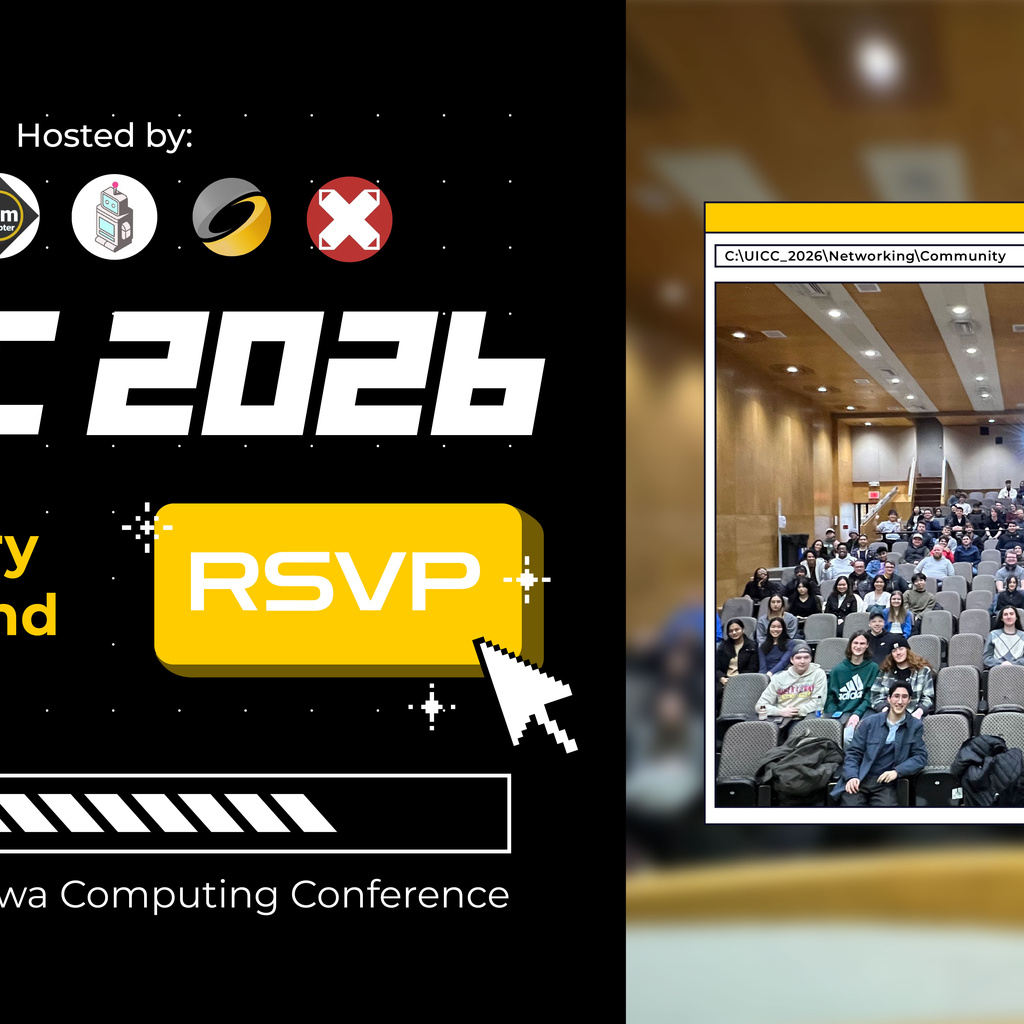Breadcrumb
Events
Upcoming Events
A Data-Driven Framework for Flood Mitigation Using Transformers and Reinforcement Learning
Speaker: Shaoping Xiao, Department of Mechanical Engineering

Colloquium - A Hessian View of Fine-tuning, Task Attribution, and Reinforcement Learning: Three Vignettes in Modern Machine Learning

The University of Iowa Computing Conference (UICC) 2026

The University of Iowa Computing Conference (UICC) 2026
Past Events
Mechanics of Collagenous soft tissue and meso-structural models
Speaker: Jia Lu, Dept of Mechanical Engineering
Statistical Modeling and Inference for Social Networks
Speaker: Buddhika Nettasinghe, Dept. of Business Analytics
The Power of Mathematical Symmetry in Theoretical Physics
Speaker: Vincent Rodgers, Dept. of Physics & Astronomy
Stochastic differential equations
Speaker: Palle Jorgensen, Dept. of Mathematics
Learning-based Agricultural Management Subject to Climate Variability
Speaker: Shaoping Xiao, Dept. of Mechanical Engineering
Two sample summary data Mendelian randomization analysis
Speaker: Kai Wang, Dept. of Biostatistics

The University of Iowa Computing Conference (UICC) 2024
"The UICC is hosted by the students and for the students to promote computing as a science and a profession."
Date: Feb. 17
Check out past conferences! [ 2016, 2017, 2018, 2019, 2020, 2021, 2022, 2023]
ACM@UIowa welcomes students, faculty, and all members of the community to our annual UIowa Computing Conference! The theme for UICC 2024 is "Computing in Entertainment." On Feb. 17, join us at the AJB and the Main Library SHAM auditorium for a deep exploration of how computer science and...
Cooperative Autonomous Systems: optimal control and graph theory for guaranteed safety and robustness
Speaker: Venanzio Cichella, Dept. of Mechanical Engineering
Introduction to nonlinear PDE
Speaker: Lihe Wang, Dept. of Mathematics
Number theory, medical imaging, and machine learning
Speaker: Prof. Yangbo Ye, Dept. of Mathematics